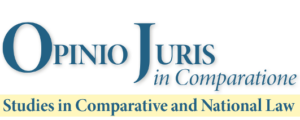Public E-Lending and the CJEU: Chronicle of a Missed Revolution Foretold
Authors: Caterina Sganga
ABSTRACT
On November 10, 2016, the Court of Justice of the European Union (CJEU) released its judgment in the Vereniging Openbare case, intervening on the debated issue on the extension to e-lending of the public lending derogation provided by Article 6(1) of Directive 2006/112. The decision was long waited by copyright scholars, for the CJEU was called to decide whether to leave the field to self-regulation and market forces, or to intervene and apply an exception by analogy in pursuance of public interest goals. Several other issues were at stake, such as the definition of digital exhaustion.
This paper provides an overview of the fast development of e-lending, describing its legal and socio-economic implications, analyzing the few reactions from national legislators, and sketching the EU sources involved in its regulation of the practice (§1). Then, it offers snapshots of the doctrinal debate, the arguments advanced in support and against the introduction of a public lending derogation, and the alternative regulatory options proposed to tackle the problem (§2). On this basis, the article analyzes and comments on the AG Szpunar’s Opinion (§3) and the CJEU’s decision (§4), concluding with an assessment of, on the one side, its positive traits and effects, and on the other side its omissions and missed opportunities for the coherent development of EU copyright law.
Keywords: e-lending - e-books - UsedSoft - digital exhaustion - Directive 2006/115 - public lending - exceptions, Vereniging Openbare Bibliotekhen

